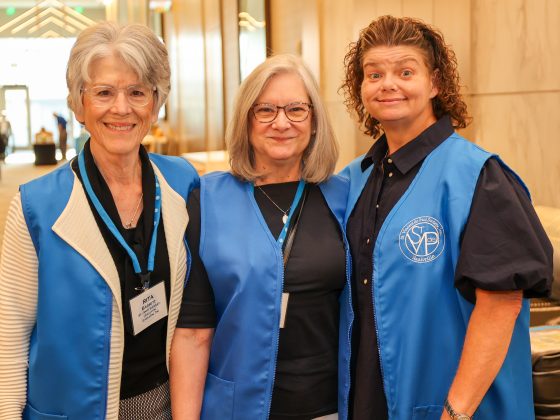In the Parable of the Good Samaritan, Christ tells of a man who stopped to care for a victim of a robbery who had been left naked and dying by the side of the road. Others had passed by, averting their eyes. Who, Christ asks us, was neighbor to the robbers’ victim? The one who showed mercy.
This parable is a Vincentian favorite as we seek to “go and do likewise”, to form mutual relationships “based on trust and friendship.” [Rule, Part I, 1.9] But if we are the Samaritans, the neighbors, who are the robbers’ victims?
The Samaritan had no helpline; he was, as far as we know, minding his own business on his journey. There was nobody else around but the man lying in the ditch, and he could have kept walking as others had. Unconscious, the victim did not cry out for help. Called only by his own conscience and his own mercy, he stopped and gave his time, his possessions, and himself. [Rule, Part I, 2.5.1]
As Vincentians, though, are we not called to do even more than the Samaritan? Our Rule, after all, says that we are “to seek out and find those in need and the forgotten…” [Rule, Part I, 1.5] Are “the forgotten” the robbers’ victims? How do we find them?
Bl. Frédéric believed that the victims of his time were the people who had been robbed of “the treasure of faith and love” and left so badly wounded that even the priests who stopped to help were turned away by the victims who could no longer recognize them. Frederic believed that we “weak Samaritans” might be able to soothe and comfort them, to welcome them into community, and to reassure them of “the hope of a better world”. [Letter 90, to Curnier, 1835]
Who are the robbers’ victims in our world? Who do we pass by, from whom do we shift our gaze, at whom do we look without touching? [Fratelli tutti, 76] It is easy to answer the phone, or to send a check – to solve a math problem. And while indeed we should never neglect to care for the necessities of the body, anybody can do those things.
It is only on our home visits, face to face, person to person, that we can truly discover those left on the side of the road, forgotten. It is by setting aside our own plans, and needs, and desires, that we reassure them that they are important. Through our loving presence we show them that God has not abandoned them.
Our visit is proof that even on the side of the road, beaten down, with the world passing by, God sees them. He cares for them, He loves them, and He awaits them.
Contemplate
Am I truly giving myself to the neighbor in need?



